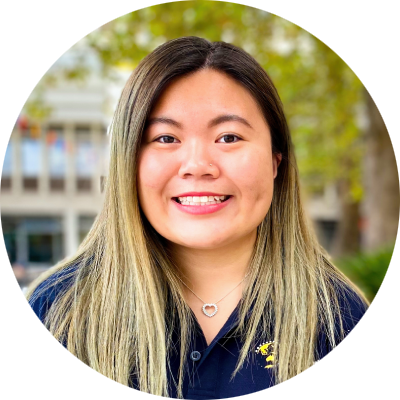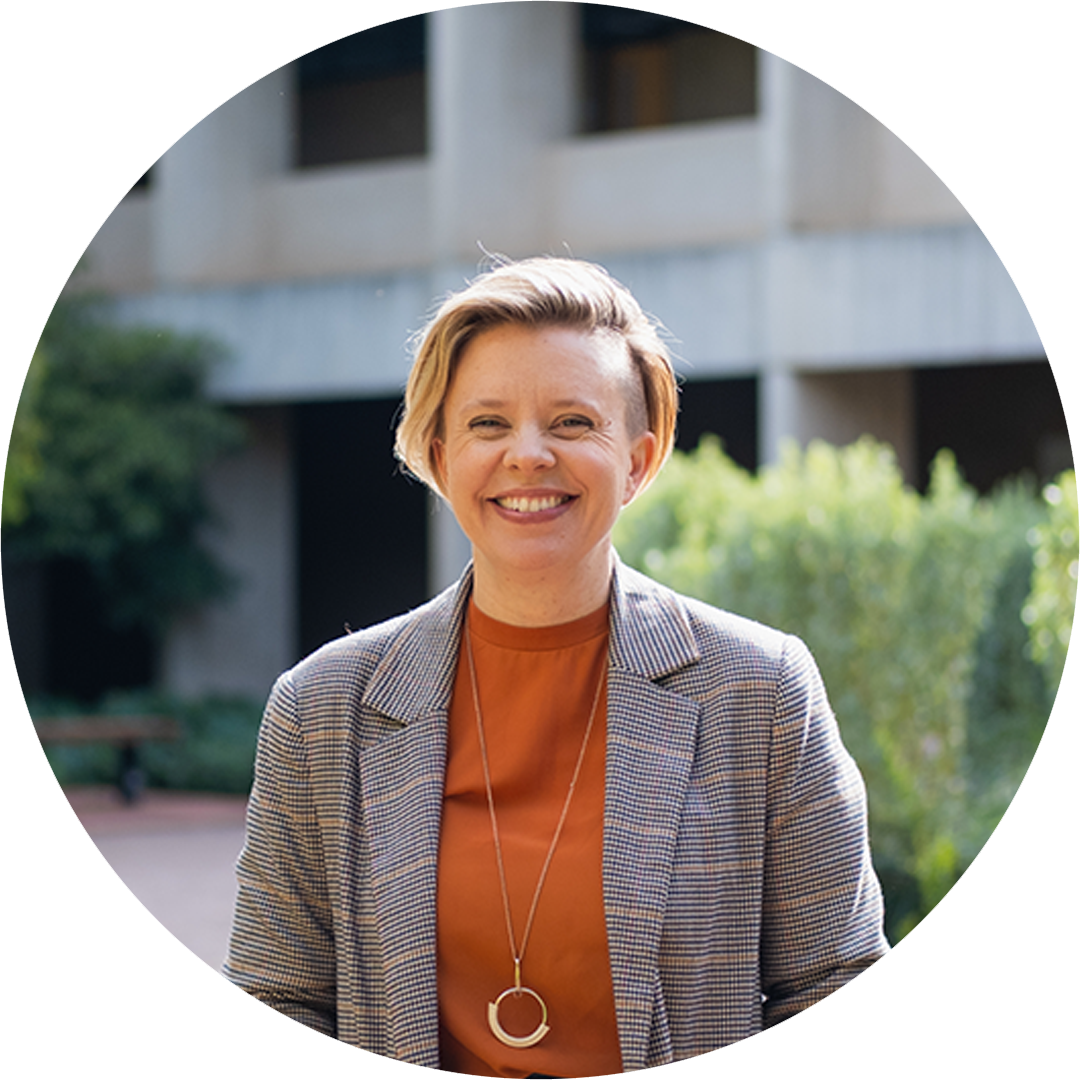Bachelor of
Psychology (Honours)
Entry requirements
Key information
VIEWING DOMESTIC
VIEWING INTERNATIONAL
Entry requirements
Key information
overall
overall
*Guaranteed ATAR not applicable for this course. This ranking notes the required ATAR for 2025 entry.
Note: Part-time equivalent study options are not available for international students.
Understand Minds. Change Lives.
Are you fascinated by the human mind and eager to understand what makes people tick? The Bachelor of Psychology (Honours) at Flinders University is your gateway to a rewarding career in psychology. Whether you dream of helping others overcome challenges or conducting groundbreaking research, this course will equip you with the skills and knowledge to make a difference.
Join us and embark on a journey to unlock the secrets of the mind.
No.1 in Australia
in Psychology for overall educational experience and teaching quality
(The Good Universities Guide 2025 (undergraduate))
1 in 4 jobs
advertised in Australia are suited to Psychology graduates
(Understanding Industry Demand for Australia's Psychology Graduate report 2023)
No.1 in SA
in Psychology for full-time employment, learning resources, overall educational experience, skills development and teaching quality
(The Good Universities Guide 2025 (undergraduate), public SA-founded universities only)
Psychology: A field with limitless career opportunities
Whether you're pursuing a registered pathway in professional and clinical psychology or seeking to apply advanced knowledge of human behaviour in diverse contexts, a degree in Psychology opens the door to a wide range of career opportunities. This qualification equips you with the professional skills needed to make a meaningful impact on people's lives and contribute to a deeper understanding of human behaviour.
Salary
$115K
typical salary in Australia
Job growth
13.3%
5-year projection
Clinical Psychologist
Clinical psychologists work with people experiencing a wide range of mental health challenges, from anxiety and depression to more complex conditions such as trauma or personality disorders. Using evidence-based therapies like cognitive behavioural therapy (CBT), they assess, diagnose, and treat individuals to help them improve their wellbeing and lead more fulfilling lives.
In Australia, clinical psychologists often work in hospitals, private practice, or community health settings, and must complete further postgraduate training and registration. It’s a rewarding pathway for those who want to make a deep, lasting impact on people’s mental health.
Policy Adviser
Policy advisers use their understanding of human behaviour, data analysis, and research to shape policies that improve community wellbeing. Working in government departments, non-profits, or advocacy organisations, they analyse social issues, consult with stakeholders, and develop evidence-based recommendations across areas like mental health, education, justice, and disability services.
For psychology graduates, this career offers the chance to influence change at a systemic level, and is ideal for those who are strategic thinkers and passionate about creating fairer, more supportive environments for all individuals.
Salary
$100K - $120K
typical salary in Australia
Jobs growth
8.7%
5-year projection
Sources: Jobs and Skills Australia, 2025 | Seek Australia, 2025
School Psychologist
School psychologists support student learning and wellbeing by assessing behavioural and cognitive issues, delivering interventions, and working closely with educators and families. Employed by schools or education departments, they help create safe, supportive learning environments. This career suits those who enjoy working with children and want to make a difference in their development.
Mental Health Support Worker
Mental health support workers assist people with mental health challenges to live independently and access the services they need. Often working in community or residential settings, they provide hands-on, person-centred care. This role offers psychology graduates meaningful experience in the sector and is a great step toward future registration or allied roles.
Researcher
Psychology researchers investigate how people think, feel, and behave to drive improvements in mental health, education, and society. They design studies, analyse data, and share insights that influence practice and policy. Researchers work in universities, institutes, and government. If you’re curious and analytical, this career offers a pathway to meaningful discovery.
With further postgraduate study and work experience, careers could include:
- Neuropsychologist
- Organisational psychologist
- Sports psychologist
- Educational psychologist
- Research psychologist
What will you study to start your career in Psychology?
Study a variety of core topics and option topics and get hands-on experience with professional placements.
- Year 1
- Year 2
- Year 3
- Year 4 (Honours)
In the first year, you’ll study a mix of core topics and option topics to build an understanding of psychology principles.
Year 1 - Core topics
Your first year might include the following topics. For exact topic information, visit the course Handbook.
In the second year, you’ll study a mix of core, option and elective topics. You’ll advance your research skills and prepare for a more complex understanding of psychology.
Year 2 - Core topics
Your second year might include the following topics. For exact topic information, visit the course Handbook.
- Research Methods
- Social and Organisational Psychology
- Cognition and Learning
- Psychological Assessment
- Psychology for Children and Adolescents
- 3 elective topics
In the third year, you’ll study a mix of core, option and elective topics. You’ll apply your knowledge to practical and specialised areas of psychology.
Year 3 - Core topics
Your third year might include the following topics. For exact topic information, visit the course Handbook.
In the fourth year, you’ll complete your honours program. This is a mix of core topics with a focus on completing your honours thesis and research topics.
Year 4 - Core topics
Your honours year might include the following topics. For exact topic information, visit the course Handbook.
- Psychology Honours Thesis
- Communicating Knowledge
- Evidence-Based Practice
- Research and Practice
Accreditation or Professional Recognition
The Bachelor of Psychology (Honours) at Flinders University is accredited* by the Australian Psychology Accreditation Council (APAC), meaning it meets national standards for psychology education. This ensures high-quality, professionally recognised training and provides a clear pathway toward further study and registration as a psychologist in Australia.

No.1 in Australia
in Psychology for overall educational experience and teaching quality
(The Good Universities Guide 2025 (undergraduate))
1 in 4 jobs
advertised in Australia are suited to Psychology graduates
(Understanding Industry Demand for Australia's Psychology Graduate report 2023)
No.1 in SA
in Psychology for full-time employment, learning resources, overall educational experience, skills development and teaching quality
(The Good Universities Guide 2025 (undergraduate), public SA-founded universities only)
Discover South Australia.
Where world-class education meets laid-back coastal living. With pristine beaches, acclaimed wineries, and vibrant festivals at your doorstep, South Australia offers an unmatched student experience.
Photo credit: SATC
Get inspired.
Discover more about Flinders University’s Psychology degrees.
Where can a degree in Psychology take you?
We chat to current students, graduates and our world-leading academic team to discover the career opportunities that are available after a three-year Bachelor of Psychological Science.
Student – Teacher 1 on 1
Meet Ali Enright and Winona Karki. In this video, Ali and Winona catch up on study and life. Ali checks in on Winona and asks how her second year of study has been, and Winona asks Ali about her journey into psychology.
“My learning experience at Flinders was great. The lecturers were really supportive; they would try their best to come up with ideas to assist us in understanding concepts and answer our questions.”

Isha Li
Bachelor of Psychological Science
“The Flinders community is so lovely. Everyone is so kind and respectful – it's amazing.”

Harry D'Onghia
Bachelor of Psychology (Honours)
“The empathy and friendliness from staff and students alike make Flinders a safe space. The university is not too formal and not daunting, so it allows students to be themselves without fear.”

Adithya Abeywickrama
Bachelor of Psychology (Honours)
“The Flinders community is welcoming and supportive. Help is always there when you need it.”

Alex Byrne
Bachelor of Psychology (Honours)
Need support?
International Student Services (ISS) is the first point of contact for international student support. The university also offers everything from cultural, health, and wellbeing services, to academic support.
Campus tours
Take a virtual tour of our campuses, guided by your fellow international students.
FUSA
Flinders University Student Association (FUSA) is the heart of the Flinders Experience. FUSA is where you'll find out about events, club memberships, and extracurricular activities.
Accommodation.
Adelaide has many accommodation options for international students. You can choose to live on campus, at our city accommodation provider The Switch, or in rental accommodation.
Flinders offers a vibrant, fun, supportive uni experience you’ll remember for a lifetime.
Need support?
From cultural, health and wellbeing services, to study and financial support, enrolment advice and more, we’re here to help.
Student clubs
Flinders University Student Association (FUSA) is the heart of the Flinders Experience. FUSA is where you’ll find out about events, club memberships and extracurricular activities.
Campus facilities
Flinders’ campuses are hubs of activity, with retail and food outlets, library spaces, study and chill spaces and more.
Learn from the experts.
Our incredible teaching and professional staff are experts in their fields and well-connected to the industry.

Teaching Program Director
Professor Lydia Woodyatt
Professor Lydia Woodyatt is a social psychologist whose research explores how psychological needs and social contexts shape wellbeing in diverse areas—from relationships and leadership to military and community settings. A multi-award-winning teacher and public speaker, she leads Flinders’ psychology teaching program and co-created its wellbeing-focused certificates. Her work, supported by ARC and industry grants, deepens understanding of forgiveness, justice, motivation, and human responses to failure.

Undergraduate Course Coordinator
Dr Ali Enright
Dr Ali Enright is a Senior Lecturer in Psychology at Flinders University. Her teaching and research focus on student success, employability, and educational equity. She co-leads curriculum initiatives that embed career development and supports first-year student transitions. Her research includes supporting highly sensitive children. A Senior Fellow of the Higher Education Academy, she is also a member of the Flinders University Institute for Mental Health and Wellbeing.

Deputy Undergraduate Course Coordinator
Dr Nathan Caruana
Dr Nathan Caruana is a Senior Lecturer in Psychology at Flinders University. His lab explores how humans interact with others and technology. His research focuses on social cognition across neurodiverse populations, using methods like eye-tracking and virtual reality. An award-winning academic, Dr. Caruana is a full member of the Flinders University Institute for Mental Health and Wellbeing.
Connect with industry while you gain real world experience.
Build your professional confidence with real-world experience during your honours year. Placement opportunities help you apply psychological knowledge in practical settings, develop industry-relevant skills, and gain insight into careers across health, education, research, and community services – preparing you for what’s next.
Flinders’ psychology program is built on strong links with industry, including healthcare providers, schools, government bodies and community organisations. These relationships ensure our teaching stays aligned with real-world demands, while giving you opportunities to hear from industry experts and expand your professional network.
The degree provides you with practical experience that prepares you for the workforce.
- Undertake a professional placement in a psychological setting in third year.
- Cover a range of assessment tests and clinical methodologies used by practising psychologists.
- Access up to 20 research laboratories.
A police check may be required to complete work placements.
Broaden your perspective and boost your career with an international exchange. As a Bachelor of Psychology (Honours) student, you’ll have the opportunity to study for one or two semesters in countries like the USA or UK - gaining global experience, cultural insight, and a standout addition to your resume.
Let’s get started on your Flinders’ experience.
We know not everyone begins uni the same way, so we offer a variety of pathways into Flinders.
Use the dropdown to tell us a bit about you.
Alternative pathways
UniTEST
If you’re in Year 12, taking the free uniTEST can help boost your chances of getting into Flinders.
Research Project B Pathway
Strong results in your Research Project B subject along with your Year 12 results can be considered for entry.
Year 12 Grades Entry
By using three of your best Year 12 grades, you can also gain a place in your course of choice.
School Recommendation Program
Your school’s recommendation about your academic performance may be considered as part of your admission.
If you started uni but didn't finish, you may be able to gain entry into Flinders with a higher education transfer.
Higher education transfer
If you’re studying at another university, you may be able to transfer to Flinders based on your Yr 12 results, current GPA or other factors.
No ATAR? No worries. If you've got work or life experience, there are pathways into Flinders.
Flinders Foundation Studies
The Foundation Studies Program is free and guarantees entry to a range of degrees.
Skills for Tertiary Admissions Test (STAT)
The STAT is a 2-hour multiple choice test that assesses your abilities.
Year 12 qualifications
If you completed Year 12 more than two years ago you can still use your results to apply.
Concerned about your ATAR? If it doesn't meet the course requirement, or if you don't receive one, we offer alternative pathways to admission. Contact us to discuss your options—we're here to help.
- Entry requirements
- Application options
If you don’t meet our English language entry requirements and need to improve your English language proficiency, you can do so through Flinders University Academy – or our approved English Language Instruction Course for Overseas Students (ELICOS) providers.
This means that you can attend the required English language tuition at approved ELICOS providers and gain direct entry into university without an IELTS or TOEFL test.
If you don’t meet our academic entry requirements, you can still gain entry to Flinders University through Flinders University Academy. With a range of diplomas, foundation and English language courses, students can find a direct pathway into the destination degree of their choice.
Flinders University and the College of Education, Psychology and Social Work (CEPSW) strongly support the right of all people to pursue an undergraduate psychology course.
Inherent requirements are the essential components of a course or unit that demonstrate the abilities, knowledge and skills to achieve the core learning outcomes of the course or unit, while preserving the academic integrity of the University's learning, assessment and accreditation processes. The inherent requirements are the abilities, knowledge and skills needed to complete the course that must be met by all students.
How to apply
Select your course.
Check entry requirements.
Check your eligibility for credit.
Obtain certified documents.
Submit your application and documents.
Application options.
Apply online
Follow up our step-by-step guide to help you with your application to study at Flinders.
Find an agent
Our registered education agents around the world understand the university system and will guide you through the application process.
Contact us
Get in touch with our team to discuss your preferences, career options, pathways, and course and entry requirements. We are here to ensure you have everything you need to choose the right degree for you.
Don't meet academic requirements? Don't worry. We'll help you get there.
Preparatory courses
If you lack required English proficiency, improve through Flinders University Academy or approved ELICOS providers for direct university entry without IELTS/TOEFL tests.
Flinders University Academy
If you do not meet entry requirements for your desired degree, Flinders University Academy will provide you with a direct pathway into the destination degree of your choice.
Frequently asked questions.
Over the years, many questions have been asked by students before. For the quickest answers view our frequently asked questions or browse the full list @ Ask Flinders.
To become a psychologist in Australia, you’ll first need to complete a four-year accredited sequence in psychology. This usually involves studying a four-year honours program such as the Bachelor of Psychology (Honours), or a three-year undergraduate degree such as the Bachelor of Psychological Science, followed by an additional honours year.
After your honours year, you can choose from different pathways depending on your career goals. If you want to become a registered psychologist, you’ll need to complete either a fifth-year graduate diploma plus one year of supervised practice, or a two-year postgraduate psychology program (such as a master's degree). If your goal is to become a clinical psychologist or gain endorsement in another area (like organisational or forensic psychology), you’ll need to complete a master’s or doctorate with a clinical placement component, followed by a period of supervised practice.
Each pathway is designed to meet the registration requirements set by the Psychology Board of Australia and accreditation by the Australian Psychology Accreditation Council (APAC).
Please note that honours (fourth year) starts a month earlier than other Flinders University courses. Some students miss this date, so it's important to take note of it.


The sky's the limit. From HR to youth work, or even market research, there are plenty of options beyond becoming a psychologist. Potential employers include community health providers, consulting firms, government agencies, research centres and more.
Psychology brings together all the key skills you need to thrive in a modern world: it teaches you to think scientifically and analyse data, and deepens your understanding of human behaviour. Qualifications in psychology - much like engineering, or economics - are highly valued by employers, and they are a good indicator that an applicant will likely have the analytical problem-solving skills that businesses need. And importantly, it's interesting!
According to SEEK, the average salary for a psychologist in Australia ranges between $100,000 and $110,000 per year.
For clinical psychologists, the average salary is slightly higher, typically between $110,000 and $120,000 annually.
- Applications are completed via SATAC
- Visit: satac.edu.au
The table below shows ATAR and Selection Rank data for students offered a place wholly or partly on the basis of ATAR commencing in Semester 1, 2025. It is limited to applicants that have recently completed secondary education (within the last two years). Data may reflect multiple courses available within a suite of courses.
Notes:
<5 – less than 5 ATAR based offers made
N/A – This course uses additional selection criteria and therefore Selection Rank is not published
| ATAR-based offers only across all offer rounds | ATAR - Excluding adjustment factors | Selection Rank - ATAR plus any adjustment factors |
|---|---|---|
| Highest rank to receive an offer | 99.15 | 99.95 |
| Median rank to receive an offer | 92.50 | 95.15 |
| Lowest rank to receive an offer | 83.20 | 91.25 |
The table below gives an indication of the likely peer cohort for new students in this course. It provides data on students who commenced study in this course in Semester 1, 2025 including those admitted through all offer rounds and international students studying in Australia. Applicant background groupings are based on educational background, not basis of admission. Data may reflect multiple courses available within a suite of courses.
Notes:
<5 – the number of students is less than 5
N/P – Not published: the number is hidden to prevent calculation of numbers in cells with less than 5 students
| Applicant background (Semester 1, 2025) | Number of students | Percentage of all students |
|---|---|---|
| Higher education study (includes a bridging or enabling course) | N/P | N/P |
| Vocational education and training (VET) study | 0 | 0 |
| Work and life experience | <5 | <5 |
| Recent secondary education - Admitted solely on the basis of ATAR (regardless of whether this includes the consideration of adjustment factors such as equity or subject bonus points) | 24 | 38% |
| Recent secondary education - Admitted where both ATAR and additional criteria were considered (e.g. portfolio, audition, extra test) | 18 | 28% |
| Recent secondary education - Admitted on the basis of other criteria only and ATAR was not a factor (e.g. special consideration pathways) | 14 | 22% |
| International Students | 0 | 0 |
| All students | 64 | 100% |
Frequently asked questions.
Get in touch with us to discuss your preferences, career options, pathways and course and entry requirements. We are here to ensure you have everything you need to choose the right degree for you.
The type of documents you will need for your international application depends on what course you are applying for and which country you are a citizen of. Course requirements are stated on each course webpage. Examples of documentation you might expect to provide for your international application include a copy of personal identification, academic transcripts or a resume.
Once you have received your Confirmation of Enrolment (CoE) letter from Flinders University, you should apply for your visa as soon as possible as visa processing times can vary. You will receive your CoE letter after you have applied to study at Flinders, accepted your offer and paid the semester tuition fee.
No. Part-time study is currently not available for international students due to visa conditions.
No. Online study is currently not available for international students due to visa conditions.
If you don’t meet our English language or academic entry requirements, you can still gain entry to Flinders University through our on-campus pathway provider Flinders University Academy. Alternatively, you can improve your English language proficiency through our approved English Language Instruction Course for Overseas Students (ELICOS) providers.
You can apply to study as an international student directly through Flinders University or an authorised agent in your country.
If you are from one of the countries listed here, you are required to apply via an education agent. If you reside onshore in Australia, you will not require an agent even if you are from the countries listed above.
Yes. As a student visa (subclass 500) holder, you and your dependents (family members) can work up to 48 hours a fortnight when your course of study is in session. If you have started a master degree by research or doctoral degree, this rule does not apply to you and working hours are not restricted.
Our dedicated International Student Services (ISS) team provide a range of programs supporting your enrolment, study and social life, as well as a referral service to facilities on campus and within the local community.
![]()
Sturt Rd, Bedford Park
South Australia 5042
South Australia | Northern Territory
Global | Online
CRICOS Provider: 00114A TEQSA Provider ID: PRV12097 TEQSA category: Australian University








